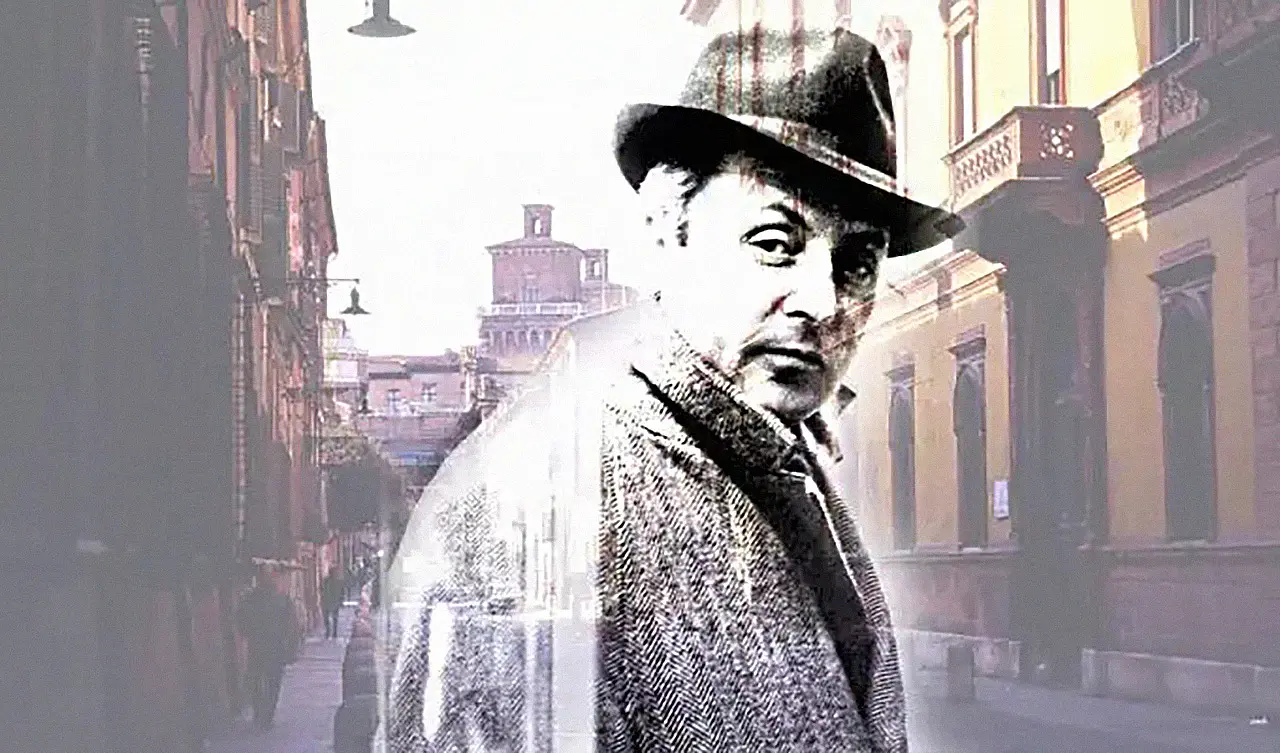SHARRYLAND


With a book under his arm: the novels of Giorgio Bassani
The world of a contemporary writer, with the city of Ferrara and the Po Delta in the background



Where is

Giorgio Bassani (1916-2000), born in Ferrara, was an inconspicuous but highly regarded writer: Strega prize for "Cinque storie ferraresi" in 1956; Viareggio prize for "Il giardino dei Finzi-Contini" in 1962; Campiello prize for "L'airone" in 1968. To commemorate his work since 2002 the Giorgio Bassani Foundation has been active in Ferrara , based in a literary place par excellence, no less than the House of Ludovico Ariosto. Three rooms on the ground floor where a sui generis library is set up , with the books that were the novelist's, often with personal inscriptions and dedications by his contemporary authors, but also with the objects of his everyday life. One thus enters his study, as if the writer had stepped out of it for a moment, and learns about his affairs, reported in text and pictures as in a sequence of memories.
A life far from Ferrara, where, however, he wanted to return
Except for his early youth, Bassani's life took place mostly far from Ferrara: first in Bologna, during his university studies; then in Florence and Rome at the time of the racial laws and the War of Liberation, remaining in the capital for the rest of his life as a writer and public man. Bassani arranged, however, to be buried in Ferrara in the Jewish cemetery on Via delle Vigne. The city wanted to remember him with a monument by sculptor Arnaldo Pomodoro, a bronze stele bearing carvings in which some see the typefaces of a typewriter and others the writer's minute handwriting. Scattered over the tomb are pebbles left with the left hand, that of the heart, by those who visited her. A Jewish custom, harking back to biblical times, when the dead were buried under mounds of stones, reasoning that adding one was considered a material sign of remembrance.
 The reconstruction of Giorgio Bassani's Roman study, curated by the Ferrara foundation that bears his name
The reconstruction of Giorgio Bassani's Roman study, curated by the Ferrara foundation that bears his nameThe narrator of a city and its extraordinary Delta.
In 1999, UNESCO registered a new site as a World Heritage Site: "Ferrara, city of the Renaissance, and its Po Delta"; the former, as an extraordinary example of urban planning of that period; the latter, as a cultural landscape exceptionally preserved in its original characters. A case more unique than rare, this Unesco property can rely on a literary coverage of great depth: the novels of Bassani, to be precise, set in the first half of the twentieth century against the backdrop of both the city, as in the case of The Garden of the Finzi-Contini, and the Delta, in the case of The Heron, set mostly in Codigoro. The writer, in fact, frequented in particular the Sullam family, which, like his own, had Jewish origins and property so extensive that it gave its name to a locality precisely along the Po di Goro.
Novels of great cinematic fortune
A visit to Ferrara and the Delta can thus be approached, as they say, with a book under one's arm. But there is more, because two of Bassani's novels have had film adaptations: Il giardino dei Finzi-Contini, in 1970 directed by Vittorio De Sica, starring Dominique Sanda and Lino Capolicchio (Oscar winner in 1972 for best foreign film), and Gli occhiali d'oro, in 1987 directed by Giuliano Montaldo, with a cast of considerable caliber-Philippe Noiret, Rupert Everett, Stefania Sandrelli and Valeria Golino (David Award in 1988 for best soundtrack to Ennio Morricone). Two events evocative of the vicissitudes of Bassani's time: a Jewish family grappling with racial persecution against the backdrop of Ferrara and a homosexual doctor suffering from discrimination to the point of tragedy, in the settings of the Delta.
 The cover of the first edition of the novel "The Garden of the Finzi Contini"
The cover of the first edition of the novel "The Garden of the Finzi Contini"His commitment to the environment and the founding of "Italia Nostra"
Another significant biographical detail: Bassani was the founder, in 1955, and then president from 1965 to 1980 of the environmental association Italia Nostra. On the mission of the new outfit he wrote almost prophetically, "The cultural and natural heritage is an asset that the technological and industrial civilization, in which we live, cannot do without, if it wants to continue to exist. Industrial civilization has shown that it knows how to give itself an efficiency; now it needs to give itself a 'religion,' that is, one that knows how to contradict everything that tends to turn man into a pure consumer. The predatory relationship with nature is no longer possible." Words as relevant as ever.
Enter the Map of Italy's Undiscovered Wonders and find treasures where you least expect it... Inspire, Recommend, Share...
The Map thanks:
Enter the Map of Italy's Undiscovered Wonders and find treasures where you least expect it... Inspire, Recommend, Share...
Where is


